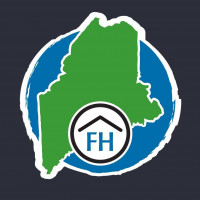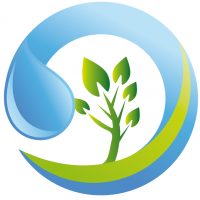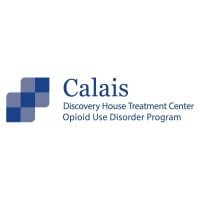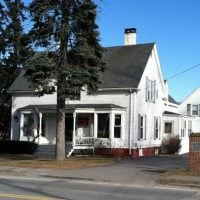
Friendship House
Drug Rehab Center in South Portland, Maine
- Substance Abuse
- Opioid Addiction
- Mental Health
- Drug Addiction
- Alcoholism
Friendship House is a CARF accredited Addiction Treatment Facility located in South Portland, ME that provides individualized care and treatment plans, Aftercare Support, Residential Rehabilitation and Sober Living/Half-Way Levels of Care to those seeking recovery from Alcoholism, Opioid Addiction, Substance Abuse, or Drug Addiction with twenty beds available for patients accompanied by private health insurance acceptance.
About Friendship House in Maine
Friendship House in South Portland, Maine is a non-profit organization that provides comprehensive services for individuals and families facing substance use disorder. Their mission is to engage individuals and strengthen families by promoting recovery and providing support with compassion, integrity and respect. With locations in the Greater Portland area, they are the largest treatment provider in Maine, offering residential, partial hospitalization, and intensive outpatient programs, as well as medication-assisted therapy and community-based services.
Friendship House provides substance abuse treatment along various lines. Treatment approaches that are used include evidence-based practices, skills-based therapy, relapse prevention, and motivational interviewing. They also offer therapeutic approaches such as cognitive behavioral therapy, trauma-informed care, and Dialectical behavior therapy. Additionally, they offer additional support through peer support services, case management, and family therapy.
Friendship House is accredited by the Commission on Accreditation of Rehabilitation Facilities (CARF), and is in good standing with the National Committee for Quality Assurance for their opioid treatment program. Additionally, they are licensed by the Maine Department of Health and Human Services and are a certified provider of the Maine Certificate of Addiction Programs. In recognition of their outstanding services, Friendship House was awarded the 2019 Outstanding Achievement Award from the Addiction Technology Transfer Center National Coordinating Center for accuracy in their quality assurance efforts.
Genders
Ages
Modality
Additional
Accreditations

CARF
The Commission on Accreditation of Rehabilitation Facilities (CARF) is a non-profit organization that specifically accredits rehab organizations. Founded in 1966, CARF's, mission is to help service providers like rehab facilities maintain high standards of care.
Conditions and Issues Treated
Many people need to recover from substance abuse to live a healthy life. In the end, if you can get through all the steps: detoxifying your body, rehabilitation after some time or when needed (depending on the type), and recovery while also receiving therapy support throughout the process, it can be worth it.
A detoxification center is a common place to start the recovery process from substance abuse. With your body and mind restored, you can continue to heal without the lingering effects of drugs.
Many people who struggle with opioid addiction need to attend specific programs like methadone , Suboxone or Vivitrol clinics.
These types of programs will provide the patient with legal, prescription medications that can help them overcome their cravings for illegal opioids like heroin or fentanyl . If the patient has a chronic condition like Hepatitis C, they must undergo treatment before they can begin taking these medications.
Levels of Care Offered
This center offers a variety of custom treatment tailored to individual recovery. Currently available are Aftercare Support, Drug Rehab, Residential, Sober-Living / Half-Way, with additional therapies available as listed below.
Sober Living Homes are an option for those who have completed a treatment program within the past several months. However, it isn’t advisable to use this as a permanent living arrangement because it can lead to a relapse .
The goal of a sober living home is to provide a supportive environment for recovering addicts so they don’t need to return to their previous lifestyles. The homes will not accept residents who are still using drugs or alcohol, and those living in the house must follow a set of rules dictating how they should behave to avoid relapsing.
Residential treatment programs are those that offer housing and meals in addition to substance abuse treatment. Rehab facilities that offer residential treatment allow patients to focus solely on recovery, in an environment totally separate from their lives. Some rehab centers specialize in short-term residential treatment (a few days to a week or two), while others solely provide treatment on a long-term basis (several weeks to months). Some offer both, and tailor treatment to the patient’s individual requirements.
Aftercare is a term that’s used to refer to any sort of continuing care offered for a drug addict who has voluntarily entered a rehabilitation program. This type of care can be provided in several settings, including outpatient therapy sessions after the addict has completed an inpatient program. There are also 12-step support groups, such as Alcoholics Anonymous, which can provide additional help for addicts trying to stay sober.
Therapies & Programs
Individual Therapy is a critical component of addiction recovery. Therapists work with patients to identify the root of their addiction and figure out how to better handle the issues that led to them using drugs. Individual Therapy is the one-on-one session where people meet with their therapist. Individual therapy provides a safe space for people to open up and discuss personal and sensitive topics which they may not feel comfortable discussing in a group setting.
Family therapy will also help families realize that the addiction is not their fault. For many years, people blamed themselves for an addict’s behavior and felt that they had done something wrong. This is not the case. Addiction is a disease, and it can strike anyone, even if their life seems fine from the outside. It can bring a lot of shame to a family when they have an addict in their midst, but if everyone is open and honest with each other, then they can help everyone stay in recovery.
Group Therapy is utilized by drug treatment centers like Friendship House to provide the recovering drug addict with a platform to talk about their feelings and experiences. It also provides for an opportunity to learn from other addicts who have successfully overcome their addiction.
Group Therapy is employed in lectures, seminars, or discussion groups (the latter two are typically conducted as “therapy groups”). It is recommended that all group members be recovering addicts for this type of therapy to work (though it does not exclude others with lived experience).
Training in improved life skills helps those recovering from addiction feel more capable of self-care. Friendship House are daily skills that give the person the tools they need to survive.
The therapy covers practical activities like cooking, job hunting, social interaction, and money management, helping to fill in the knowledge gaps caused by addiction.
These life skills help the person self-manage their recovery and stay on track. It also reduces relapse risk as they gain confidence in their day-to-day abilities.
12-Step Program is used by drug treatment centers to get addicts sober. The 12 steps typically begin with addicts admitting they need help. They will work through physical withdrawal symptoms, identify the problems that led to their addiction and learn how to resist cravings. It is often used as a part of an inpatient or outpatient treatment program and is frequently recommended by doctors.
Patient Experience
Experiential Therapy at Friendship House
Experiential therapy is another form of treatment that helps addicts overcome their addiction. This type of service typically involves hands-on activities with the focus on physical experiences instead of emotions or beliefs.
Some examples include art therapy, equine therapy and music therapy. Each of these forms of experiential therapy can provide unique ways for addicts to channel their feelings and work through their demons. This type of therapy also allows addicts to develop meaningful emotional connections with others, which can prevent them from resorting to relapse as a coping mechanism.
Payment Options Accepted
For specific insurance or payment methods please contact us.
Is your insurance accepted?
Ask an expert, call (888) 674-0062
Additional Details
Specifics, location, and helpful extra information.
South Portland, Maine 4106 Phone Number(207) 767-7403 Meta DetailsUpdated November 25, 2023
Staff Verified
Friendship House Patient Reviews
There are no reviews yet. Be the first one to write one.
South Portland, Maine Addiction Information
Prescription opioid abuse is the most common form of substance abuse in Maine. More than 10% of these residents have also admitted to using prescription drugs for non-medical purposes. Between 2013 and 2014, 4 out of every 5 deaths in Maine were caused by illicit drugs. One in five high school students in Maine uses marijuana every single month.
South Portland, Maine, has a significant drug addiction issue. In 2012, 9.4% of people in the city reported using illicit drugs. Additionally, 17.5% of people reported binge drinking in the past month. The most common drugs reported by individuals entering treatment were opiates/heroin, alcohol, and methamphetamine. It is important to speak with a professional to determine which type of program would be best for you or your loved one.
Treatment in Nearby Cities
- Harrington, ME (140.4 mi.)
- Charleston, ME (117.9 mi.)
- Augusta, ME (53.3 mi.)
- York, ME (37.3 mi.)
- Fairfield, ME (74.5 mi.)
Centers near Friendship House

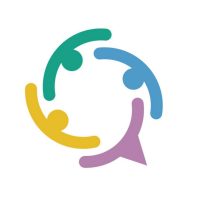
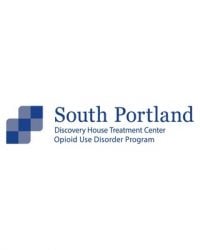
The facility name, logo and brand are the property and registered trademarks of Friendship House, and are being used for identification and informational purposes only. Use of these names, logos and brands shall not imply endorsement. RehabNow.org is not affiliated with or sponsored by Friendship House.


